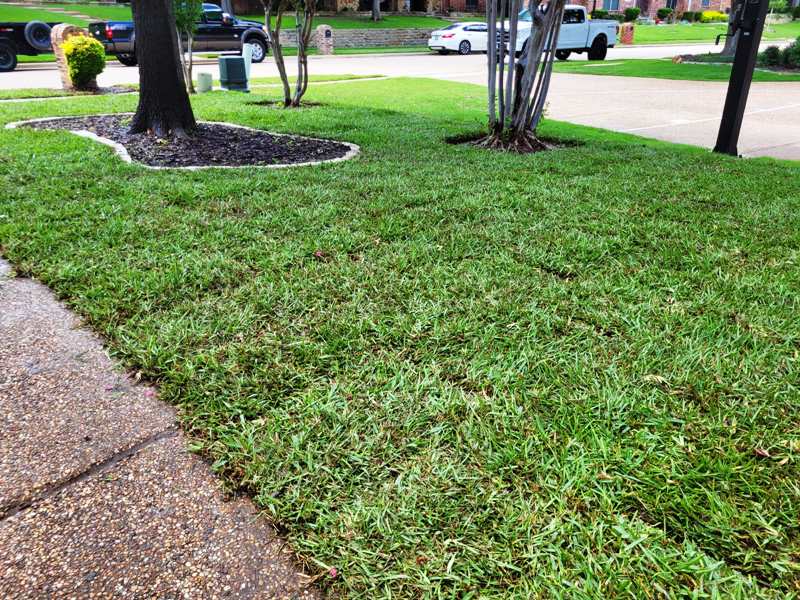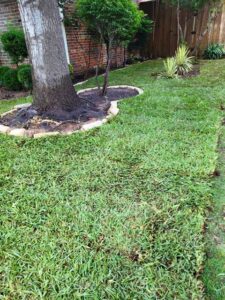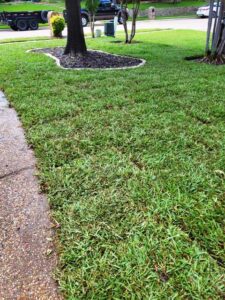
solvida
St. Augustine Grasses for Shaded Texas Lawns
If you are like many homeowners in Texas, you are constantly striving to care for and improve your lawn. While you can treat weeds, fertilize, and core aerate your yard to relieve compaction and improve yard drainage, you cannot always change the level of sunlight available to your turfgrass. If parts of your yard spend close to half of the day in shade, most warm-season grasses will perish over time without enough sunlight. However, St. Augustine sod offers shade tolerance in addition to several other worthwhile characteristics. Known mainly as a southern grass, St. Augustine has a very wide blade and coarse texture. Below, we have highlighted several varieties of St. Augustine grasses for shaded Texas lawns.
FJ’s Select St. Augustine
Known for its superior shade tolerance, FJ’s Select St. Augustine grass can thrive in areas of full or limited sun. Also highly rated for salt tolerance, this particular variety is best for coastal areas.
Raleigh St. Augustine
Raleigh is the most commonly used variety of St. Augustine in Texas. With a dark green blade, Raleigh St. Augustine grass can be grown in shaded lawns. Due to its aggressive growth habit, Raleigh is also a good variety for residential lawns because it can withstand a lot of foot traffic.
Palmetto St. Augustine
Developed to be an improved variety of Raleigh, Palmetto St. Augustine grass is now the most commonly installed variety of St. Augustine throughout the United States. Palmetto has an emerald green blade that grows into a dense turf. Needing only 3-4 hours of direct sunlight each day, Palmetto rivals most other varieties of St. Augustine for shade tolerance.
Scott’s ProVista St. Augustine
After investing decades into research and development, the lawn fertilizer and weed control company Scotts created ProVista St. Augustine. With similar shade-tolerance levels as other St. Augustine varieties, ProVista is unique in that it has been engineered to withstand weed killers such as glyphosate. Typically, weed-killing chemicals will also kill or damage turf. By demonstrating glyphosate resistance, it’s possible to treat your ProVista lawn for weeds with glyphosate, and the sod itself remains intact.
If you are struggling to grow sod in the shadier parts of your yard, you can safely consider any one of these varieties of St. Augustine for your Texas lawn.

